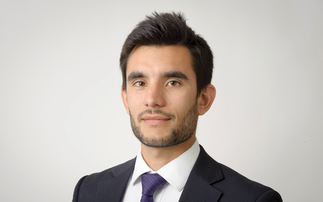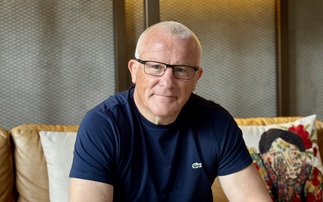How important is engagement within your sustainability toolkit?
Engagement is a big part of our toolkit for creating positive change. If you want to achieve goals such as decarbonisation, you can't do that entirely by funding new exciting start-ups, no matter how much money you give them. At a certain point, you're going to have to engage with existing industries and the high carbon-emitters of today.
Our two big aims are to integrate sustainability into our research and then to use our investment platform to engage and promote the types of positive sustainability practices we want to see.
We believe ESG can enhance investment returns not only through better and more complete investment analysis, but also because you can then generate alpha by driving improvement in company behaviour after you own a security, rather than by simply trading that security.
Where do you sit in the debate over engagement versus exclusion?
In general, we favour engagement over exclusion as a tool of implementing change. Exclusions can be very effective if what you're trying to do is clean up your portfolio. But if you're trying to create change, exclusion simply means that you don't own it but someone else is going to own it. So what change are you actually making?
I'm based in Asia, and it's common to hear that investing in Asia requires some sort of consensus approach. But my experience is that most companies respond well to a consensus approach, whether they are in a developed or developing market. You achieve the best outcomes not by naming and shaming a management team, but by persuading them that you genuinely know and care about their business and that you have insights to add to the way they run their business.
How do you track your success in affecting the key sustainability issues?
As well as monitoring ESG ratings across our investible universe, we now have an engagement tracker on our research platform to help us monitor our ESG engagement. For each company, we can set an objective and set milestones and then track progress, e.g., through a series of meetings with the company conducted by the ESG analyst, the fundamental analyst, or the portfolio manager.
Is one-on-one company engagement your main focus?
We have two more styles of engagement, the next being thematic engagement. Here we are not trying to differentiate companies, but to take advantage of the fact that they're all within a certain space so we can engage with them in a consistent way on a specific issue.
For example, we did that in Asia with textile supply chains last year. And we had a really successful engagement with ASEAN banks on the financing of new coal-fired power plants, in which we questioned their business rationale given the stranded asset risk of governments phasing out thermal coal to achieve their net zero ambitions - and how this is likely to happen over a much shorter timeframe than is commonly expected.
As well as thematic engagement we conduct many collaborative engagements. For example, we recently led a large collaborative engagement on the issue of seafarers.
What are your key themes for 2021 and how did you choose them?
We identified three key themes for 2021, all of which have at their heart this idea of building back from Covid in a better, fairer way and what we can do as a firm to contribute. One is the preservation of ‘natural capital', which includes climate change and decarbonisation but also puts biodiversity firmly on the agenda - the scale of the biodiversity emergency we face needs to be much better understood.
The second is around employee welfare and Covid-19's impact, particularly on women and minorities. The third is around digital inclusion and digital ethics, which has become even more important now that so much of our lives is spent on technology platforms.
What is driving Fidelity's distinctive approach to sustainability?
One thing is our long-term mindset. It's often said that long-term investors need to move from a mentality of renting equity to one of owning equity. But what does that mean for the kinds of practices that a long-term equity owner wants to see? Probably not a focus on next quarter's profits because how relevant is that going to be? Probably much more of a focus on employees and how they're being looked after; customer data privacy; cyber security; and other big issues that feed into the sustainability of the company's business practices.
In addition, all of our investing at Fidelity is fundamental and bottom up so I think our ESG approach needs to be as well: understanding companies within the context of their markets, their businesses, their peers, what they're trying to achieve, what their governments are trying to get them to achieve. That all takes on-the-ground engagement as well as analysis.
Click here to learn more on how engagement is powering positive change, in Fidelity's new interactive digital guide
Important Information
This information is for investment professionals only and should not be relied upon by private investors. The value of investments (and the income from them) can go down as well as up and you may not get back the amount invested. Past performance is not a reliable indicator of future returns. Investors should note that the views expressed may no longer be current and may have already been acted upon. Changes in currency exchange rates may affect the value of an investment in overseas markets. Investments in emerging markets can be more volatile than in other more developed markets. Reference to specific securities should not be interpreted as a recommendation to buy or sell these securities, but is included for the purposes of illustration only. A focus on securities of companies which maintain strong environmental, social and governance ("ESG") credentials may result in a return that at times compares unfavourably to similar products without such focus. No representation nor warranty is made with respect to the fairness, accuracy or completeness of such credentials. The status of a security's ESG credentials can change over time. Investments should be made on the basis of the current prospectus, which is available along with the Key Investor Information Document, current annual and semi-annual reports free of charge on request by calling 0800 368 1732. Issued by Financial Administration Services Limited, authorised and regulated by the Financial Conduct Authority. Fidelity, Fidelity International, the Fidelity International logo and F symbol are trademarks of FIL Limited. UKM0321/34016/SSO/NA












